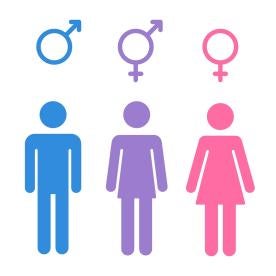On May 31, 2016, the Fourth Circuit Court of Appeals denied en banc review of an April decision permitting transgender students to use sex-segregated facilities that are consistent with their gender identity. The Fourth Circuit encompasses North Carolina; thus, the case G.G. v. Gloucester County Public School Board (“Gloucester County”), although it arose in Virginia, creates a conflict between federal law and North Carolina’s House Bill 2 (“HB2”), which requires transgender individuals to use public bathrooms that match the gender listed on their birth certificates. Although Gloucester County applies on its face to students and public schools, the decision impacts retailers who provide bathroom facilities to employees and customers and who must navigate conflicting laws regarding transgender protections. Of additional importance, plaintiffs in sex discrimination lawsuits will likely use the decision as support for the view that a person’s “sex” includes “gender identity.”
In Gloucester County, a sixteen-year-old transgender high school student who was born a biological female filed suit to use the boys’ restroom at school. G.G. and his mother contended that the school’s policy of providing separate restrooms and locker rooms based upon a student’s biological sex constituted sex discrimination under Title IX—the federal law that prohibits sex-based discrimination in federally funded educational programs and activities. On April 19, G.G. prevailed in a two-to-one decision of a three member panel of the Fourth Circuit, which deferred to the U.S. Department of Education’s interpretation that the reference to “sex” in Title IX includes “gender identity.”
Following the panel’s ruling, the school board asked the Fourth Circuit to rehear the case with the full panel of 15 active judges. On May 31, the en banc panel denied the school board’s request. Circuit Judge Paul V. Niemeyer, widely considered the most conservative member of the Fourth Circuit, filed the lone dissent, stating the issue “deserves an open road to the Supreme Court to seek the Court’s controlling construction of Title IX for national application.”
Regardless whether the case proceeds to the Supreme Court, the decision signifies the first time a federal appeals court has found that federal law protects the rights of transgender persons to use sex-segregated facilities that are consistent with their gender identity. Although decided under Title IX with regard to student rights, the decision may have ramifications in the area of employment law, inasmuch as Title VII, like Title IX, prohibits discrimination based on “sex.” Retailers and other employers should be alert to the issue and may expect that future litigants will seek to expand the Gloucester County ruling to Title VII and other sex discrimination claims.
Given the political and legal climate surrounding HB2 and related laws that affect the rights of transgender persons, we recommend that retailers proactively accommodate the needs of transgender workers rather than reactively respond to potential claims of discrimination. Retailers, particularly those operating in states with anti-discrimination laws that cover sexual orientation and gender identity, should implement a policy designed to foster workplace inclusion. In particular, retailers are encouraged to provide transgender employees access to bathrooms that correspond to their gender identity and, where possible, provide employees with additional options, including single-occupancy gender-neutral (unisex) facilities and use of multiple-occupant, gender-neutral restroom facilities with lockable single occupant stalls. Furthermore, retailers in the clothing industry with dressing/fitting rooms should accommodate their employees and patrons alike by permitting them to use the dressing/fitting room that corresponds to their gender identity. These recommendations apply equally to those retailers in North Carolina because, although HB2 remains in effect in that state, the law applies only to places of public accommodation, and, in any event, the Fourth Circuit’s recent decision signals that the controversial law may not withstand judicial scrutiny. In general, retailers should beware that engaging in discriminatory practices may have negative business as well as legal ramifications.




 />i
/>i

